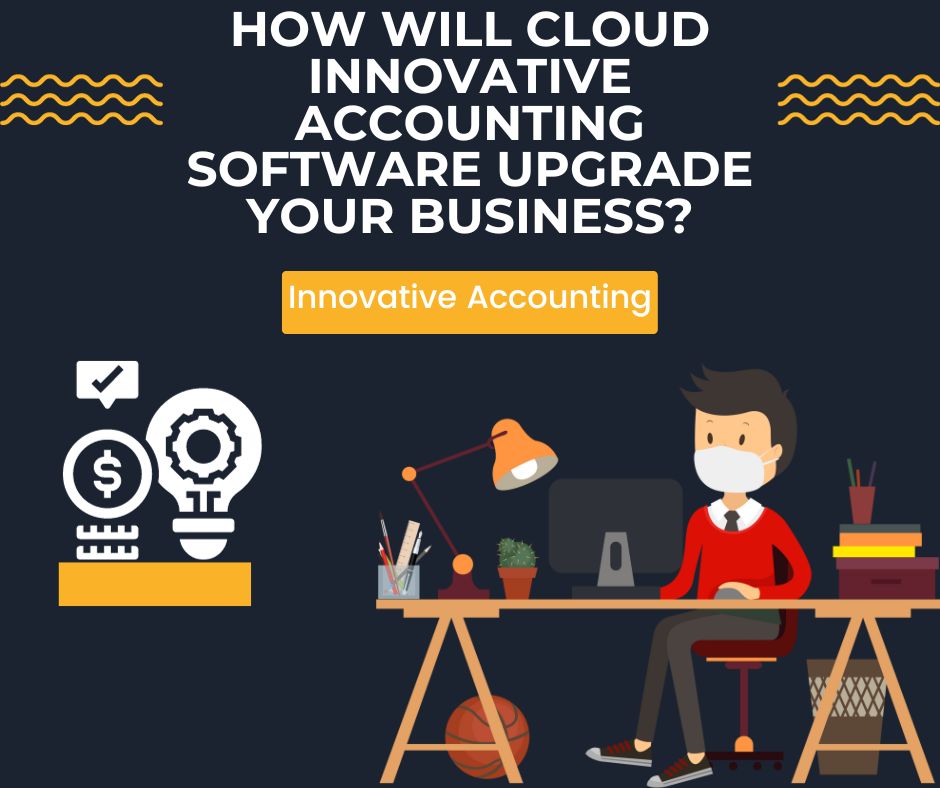Is your small business still using spreadsheets for manual bookkeeping? Adopting a new cloud accounting platform can give you a competitive edge through data-driven insights and automation. Read on to learn how modern solutions will accelerate your business.
- Streamline Financial Management via Intelligent Automation
- Access Financial Data From Anywhere
- Enterprise-Grade Security
- Built to Scale With Your Changing Needs
- Integrate Systems to Unlock Data Insights
- Empower Collaboration With Shared Data
- Cloud Accounting Benefits for SMBs
- Significant Cost Savings Over Legacy Systems
- Intuitive Interfaces Enhance User Experiences
- Leverage Innovation Accounting Techniques
- Key Takeaways
- Conclusion
- FAQs
Streamline Financial Management via Intelligent Automation
New cloud accounting platforms automate repetitive money tasks using intelligent technologies. In this way, you don’t need to waste hours on manual work. This enables you to free up your team for strategic analysis and planning. Software bots handle the boring stuff so your people can focus on decision-making.
Over 90% of customers achieve major efficiency gains this way. Your business can too. Financial close cycles can be cut by up to 79% with automated reporting and reconciliation. Get key data faster for quick, informed leadership decisions.
Cloud accounting solutions directly boost productivity and innovation. Their flexibility supports continuous improvement through rapid testing and feedback. Easily run experiments to guide data-driven decisions on new initiatives, pricing, expansion plans, and more.
Adapt in real-time based on metrics. Innovative accounting principles allow the use of financial data to validate product-market fit and inform growth. By prioritizing experimentation based on metrics, you can accelerate innovation.
Access Financial Data From Anywhere
A major advantage of cloud accounting is accessing up-to-date financial data. This can be done anytime, anywhere from any device. Surveys show that 88% of businesses see real-time remote access as a huge benefit.
All employees are able to view reports and transactions anywhere. With this, you can create complete financial transparency across your organization. This makes data available to everyone, enabling informed decisions at every level.
Making information readily available organization-wide also enables openness, collaboration, and innovation. Transactions can be entered promptly without geographic silos or bottlenecks. The cloud allows you to enable continuous innovation accounting powered by real-time data.
Enterprise-Grade Security
When it comes to sensitive financial data, security is paramount in evaluating accounting solutions. Leading cloud platforms incorporate rigorous protections including:
-
End-to-end encryption: Encrypts data from start to finish
-
Role-based access controls (RBAC): Restricts access based on user roles
-
Multifactor authentication (MFA): Requires multiple credentials to log in
-
Sophisticated cyber threat detection: Advanced monitoring for hacking threats
Customer data is safeguarded and encrypted both at rest and in transit. Regular independent audits validate security and compliance with regulations like:
-
System and Organization Controls (SOC) 2: Service organization security standard
-
Payment Card Industry Data Security Standard (PCI DSS): Credit card data security standard
-
General Data Protection Regulation (GDPR): EU data privacy regulation
Disaster recovery is assured with automatic geo-redundant backups in multiple locations. By leveraging state-of-the-art cybersecurity cloud providers offer far more advanced protection than any on-premises system. Your data is secured 24/7 by dedicated security experts.
Built to Scale With Your Changing Needs
A big plus of cloud accounting is accessing up-to-date money data 24/7 from any device. Surveys show that 88% of businesses see real-time remote access as a huge benefit.
With all employees able to view reports and transactions anywhere, you create total financial transparency across your company. This makes data available to everyone, enabling informed decisions at every level.
Making information readily available company-wide also allows openness, teamwork, and new ideas. Transactions can be entered right away without geographic silos or holdups. The cloud lets you enable continuous innovation accounting powered by real-time data.
Integrate Systems to Unlock Data Insights
Consolidating business data into cloud accounting enables connecting other systems via APIs. This provides:
-
Sync real-time data from CRM, e-commerce, inventory, HR, POS, etc
-
Eliminate manual re-entry between spreadsheets and software
-
Get holistic visibility across the entire organization
-
Create a single source of truth to uncover insights
-
Make better strategic decisions with live data
-
Build customized analytics dashboards and reporting
-
Embed financial, operations, and customer intelligence
-
Gain a competitive edge
By integrating systems, cloud accounting breaks down data silos. This unlocks essential insights to boost strategic growth.
Empower Collaboration With Shared Data
While cloud accounting software has great technical features, one of its biggest pluses is allowing easy teamwork across departments. With all employees able to securely access the same real-time money data at once, it encourages openness and responsibility.
This also fosters alignment within the organization. Sales know the latest on money owed. Marketing sees raw customer acquisition costs. The supply chain can view payables and inventory costs.
Instead of siloed documents on individual computers, the cloud gives the whole company a “single source of truth.” Research shows this breaks down department silos, boosting productivity by over 20% by improving company-wide teamwork and new ideas.
Look at the below chart that shows the top benefits of cloud accounting software:
Cloud Accounting Benefits for SMBs
|
Benefit |
Finding |
Source |
|
Increased Efficiency |
90% of users |
Xero |
|
Faster Reporting |
Up to 79% reduction in financial close time |
Oracle |
|
Cost Savings |
Avg. $53K/year savings |
Fundera |
|
Remote Access |
88% find it valuable |
QuickBooks |
|
Scalability |
60% of SMBs praise it |
Intuit |
|
Collaboration |
>20% productivity improvement |
HubSpot |
The table shows important stats from trusted sources. It highlights the many benefits cloud accounting gives small and medium businesses. These include big cost savings and better teamwork.
Significant Cost Savings Over Legacy Systems
Moving to a new cloud accounting system can save a lot of money compared to keeping old on-site solutions and manual processes.
-
The cloud means no expenses for servers, licenses, equipment, and IT infrastructure
-
Cloud offers a flexible monthly subscription based on your usage and needs
-
Automatic updates are free to always have the latest features
-
Cloud automates tasks, freeing staff for strategic work
-
Studies find SMBs save $53,000 yearly in accounting costs with the cloud
-
Cloud savings go directly to profitability to invest in growth
Intuitive Interfaces Enhance User Experiences
Beyond the measurable time and money savings, cloud accounting systems also provide value by offering more intuitive and user-friendly interfaces compared to old desktop software. Clean, modern designs make navigating tasks simple using visual icons and dashboards.
Notifications, chatbots, and quick help guides make the self-service experience smooth for users. Increased adoption across your teams enhances productivity and satisfaction. Your staff uses the software as an asset rather than a liability.
The cloud also enables accessing the same environment from any device. This creates a seamless experience across locations and platforms. Consolidating tools into a unified cloud suite improves usability.
Leverage Innovation Accounting Techniques
Applying new accounting principles on your cloud platform lets you use money numbers to test ideas and pick what works. By running small experiments and tracking results, you can speed up innovation. Move from fixed budgets to flexible forecasts you update as things change.
Share the latest figures so everyone’s on the same page. Seeing real-time data helps turn concepts into reality faster. With the cloud, accounting goes from bookkeeping to a partner giving insights to get ahead. Unlock innovation by using intelligent money management.
Key Takeaways
-
Cloud software provides automation and analytics for better efficiency.
-
Access financial data anywhere for timely decisions.
-
Advanced security protects sensitive data.
-
Integrations get more insights from systems.
-
Shared access improves collaboration.
-
Cloud is flexible and scalable.
-
Saves costs by eliminating on-premises expenses.
-
Helps accelerate growth using financial metrics.
-
Work with an advisor to get the right solution.
Conclusion
Upgrade to next-gen cloud accounting now to get a competitive boost. But be choosy – one size doesn’t fit all. Partner with an expert to find the perfect fit for your needs and goals. Unleash improved efficiency, actionable insights, and innovation through tailored cloud solutions.
The future of accounting is here – are you ready to seize it?
FAQs
1. What features allow cloud accounting software to scale?
Modular architecture enables activating new capabilities on-demand. Usage-based pricing aligns costs with needs.
2. Is my data secure?
Leading providers leverage rigorous enterprise-grade security and undergo audits.
3. What integrations are available?
Most platforms offer pre-built integrations with POS, CRM, payroll, banking, e-commerce, and more.
4. How difficult is switching from desktop accounting?
Migration tools, historical data imports, and training programs ease the transition.
5. Does the cloud allow mobile access?
Yes, the cloud enables checking financials anytime, anywhere, from any device.



